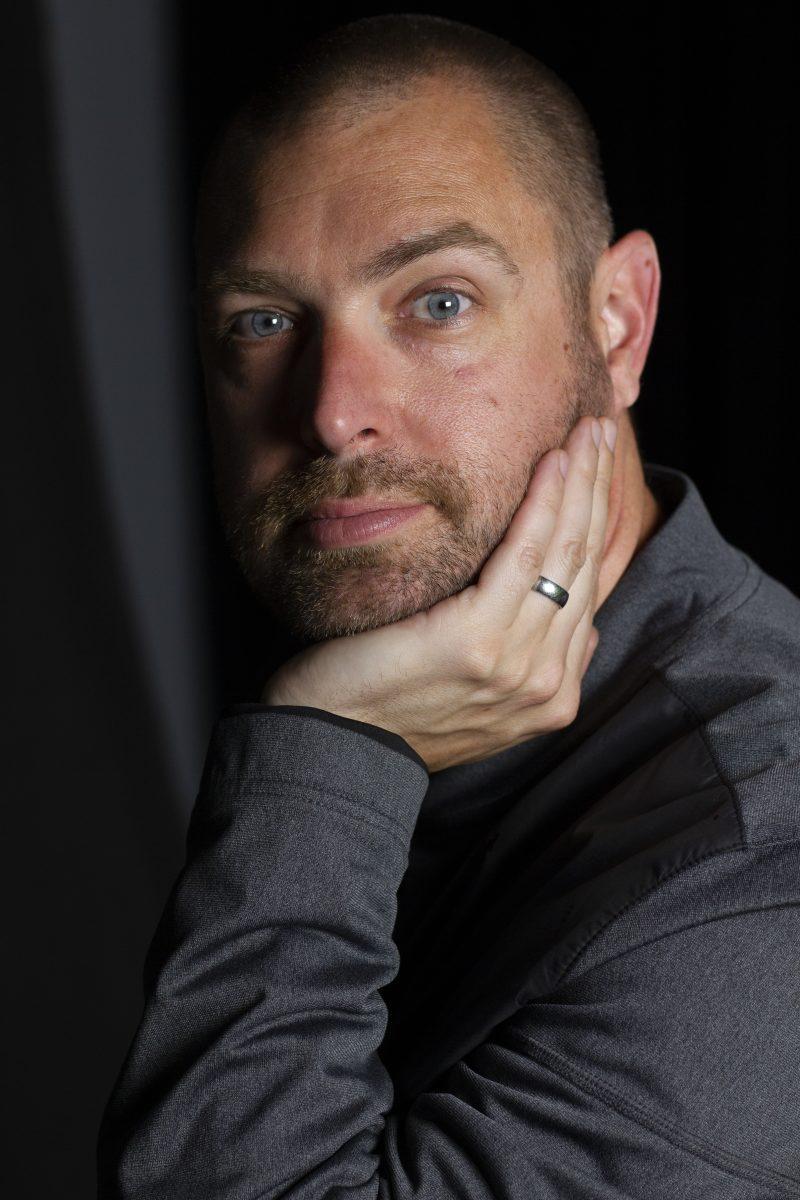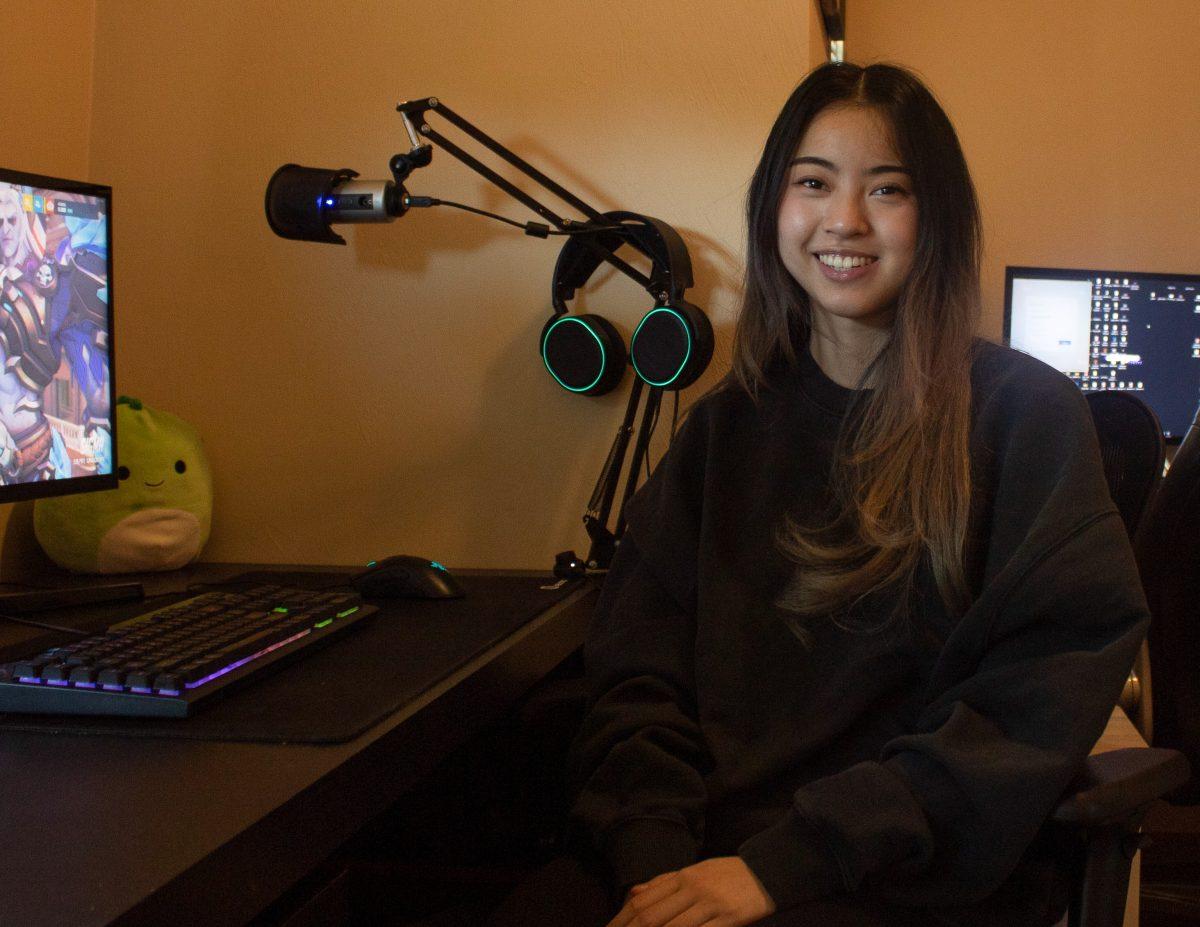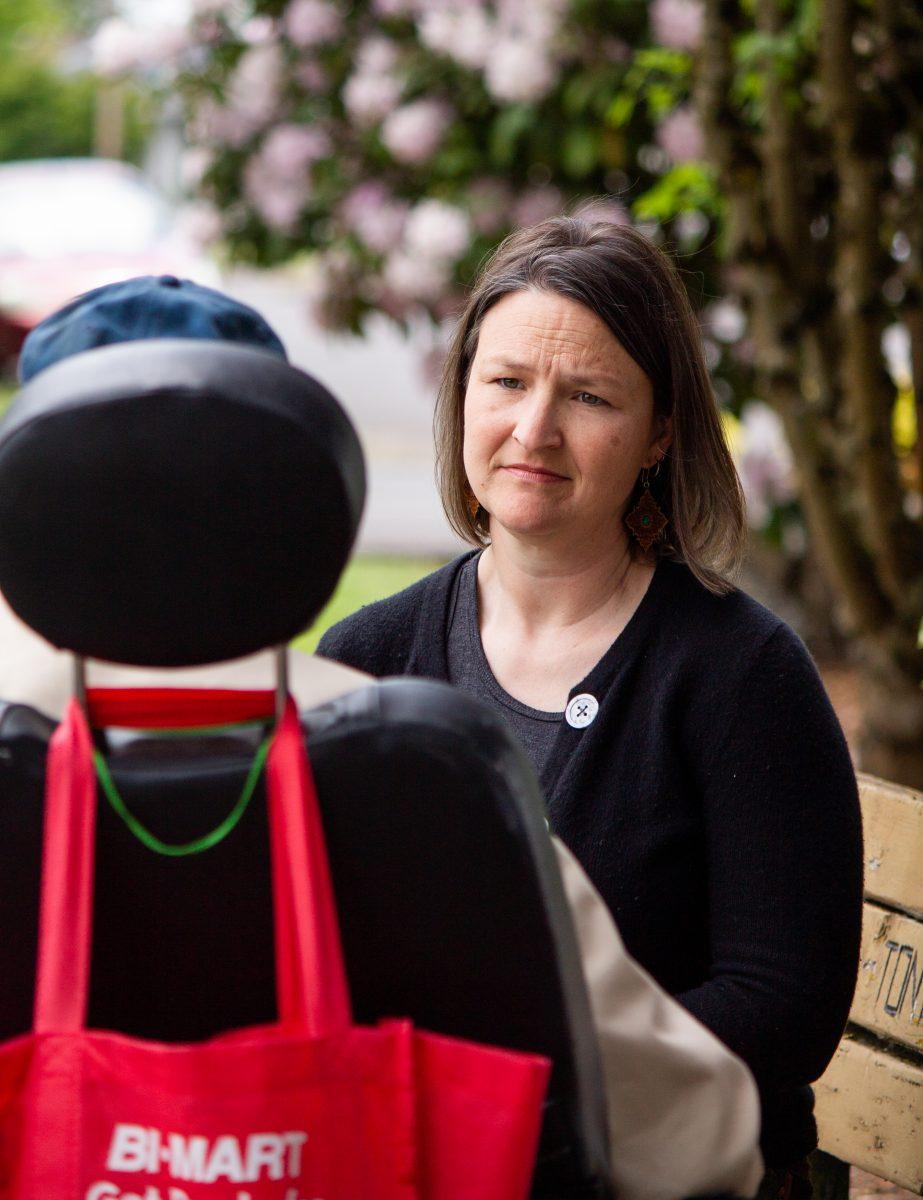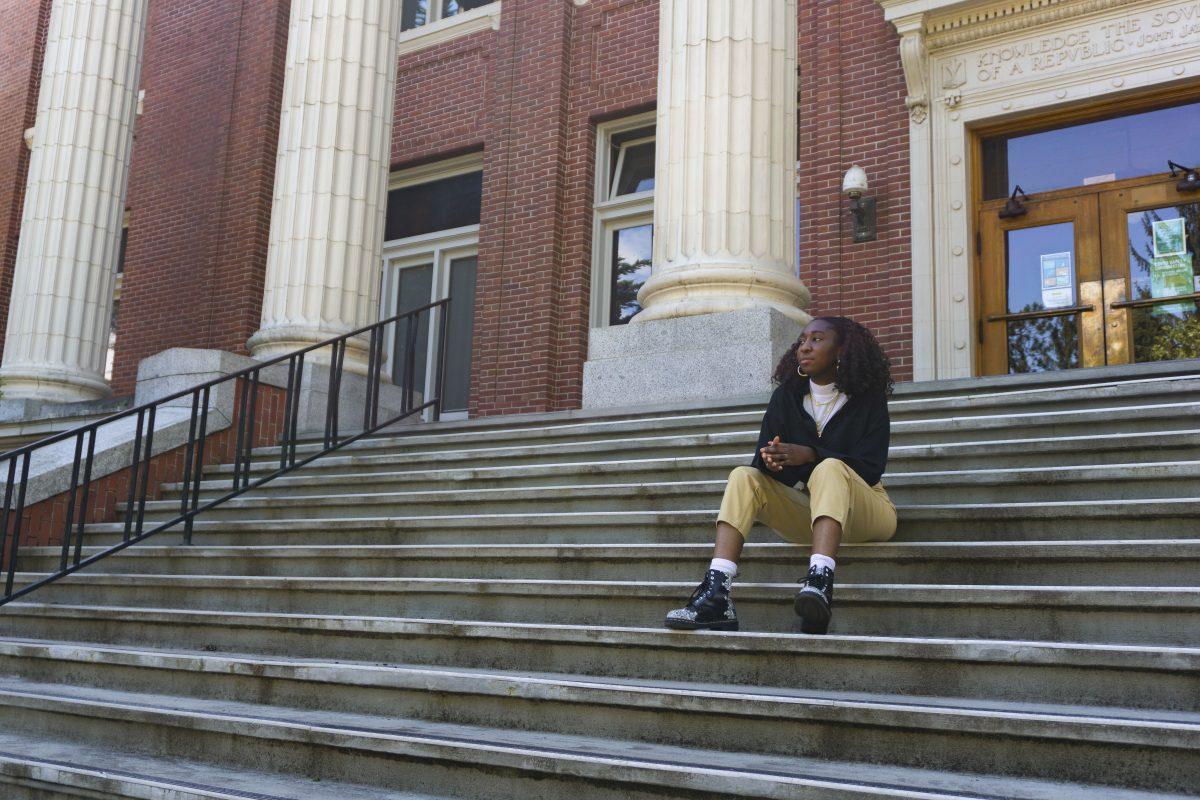As hot water ran down Lauren Pak’s shoulders, the tile floor beneath her feet turned a silty brown. She separated the knots from her jet-black hair and scrubbed beneath her fingernails, removing dirt that had traveled all the way from Colorado to Utah with her. Across the room, two adult women watched her shower.
Pak didn’t care — it was the first time the 16-year-old had properly bathed in months. She’d spent the last half-year hiking through the sweltering heat of Arizona, then through the forests of Colorado, in an intensive wilderness therapy program. Although she’d graduated from wilderness therapy, her parents still weren’t sure what to do with the “unruly” teen. So instead of returning home to the Bay Area, Pak was transferred to an all-girls therapeutic boarding school in Utah where she now had to strip naked, bathe,then squat and cough in front of staff members before she could be admitted. She had no idea when she could go home.
“At the time, I was just exhausted and relieved to be somewhere new,” says Pak, who is graduating from the University of Oregon. She says she had no idea the next few months at the boarding school would subject her to bizarre punishments at the hands of staff, such as scrubbing bathroom floors and toilets, humiliating therapy techniques that involved degrading other girls and weeks of silent treatment from fellow students.
At age 16, Pak became one of the more than 10,000 young people each year enrolled in the “troubled teen industry.” The industry is defined by the National Youth Rights Association as a range of programs including boot camps, behavior modification facilities and wilderness therapy programs, all “marketed to parents who feel like they need to change their child’s behavior.”
At therapeuticboardingschools.org, one of many companies offering desperate parents guidance for their teenagers, an online checklist titled “Behavior Flags that Mean It’s Time to Send Your Teen to a Behavior Modification School” includes substance abuse and illegal activities, along with mental illnesses like anxiety disorders, depression and eating disorders as warning signs.
The website says teenagers who have engaged in illegal activity are at a higher risk for arrest, “so it is best to avoid that by sending them to a troubled teen boarding school.”
While people in the industry view these programs as a final opportunity to save wayward children, critics say the industry lends itself to abuse and mistreatment while profiting off vulnerable teenagers. The programs are undeniably profitable — in the state of Utah alone in 2015, residential treatment facilities for teens and young adults brought in $269 million, according to an economic impact study by the Kem C. Gardner Policy Institute.
In Paris Hilton’s documentary “This is Paris,” she describes enduring a nightmare at the Provo Canyon School, a behavioral health center for teens in Utah. In the documentary, Hilton describes being attacked by fellow students at least four times, including once in her sleep, pinned down by her arms and legs nearly 30 times by staff members, and injected with sedatives 17 times over three months at the school.
Former participants of these programs, like Pak, say something must change. Thousands are flocking to social media using the hashtag #breakingcodesilence to speak out about their experiences and even take legal action against the industry they say traumatized them.
In December of last year, a class-action lawsuit of roughly 25 members sought millions of dollars in retribution from Trinity Teen Solutions and Triangle Cross Boys Ranch on charges of “human trafficking and abuse” in Wyoming, according to the Billings Gazette. In March 2021, the owners of Circle Hope Girls’ Ranch and Boarding School in Missouri were arrested following a wave of allegations on TikTok. The husband and wife who owned the school are facing a combined 101 felony counts, including charges of child molestation and abuse, according to NBC News.
Now, a lawsuit against the Utah boarding school that Pak attended is in the process of being filed, according to Michael Young, a lawyer who is representing people who are suing the school. Knowing that in the future, children may not have to endure the trauma she did, Pak says, is the first step for her healing. Ethos Magazine is not naming the school here because the lawsuit has not yet been filed.
Once Pak was strip-searched at the Utah school, she says she was given a bright pink uniform to distinguish her from the other girls. This meant she had the lowest level of privileges: she had
to be within eyesight of a staff member at all times, could not call her parents and could barely speak to the other teens.
“I think they probably thought I would start trouble,” Pak says. “And to be honest, they were right.”
The students at Pak’s Utah boarding school were sent away from their homes for various reasons. Some had behavioral issues, leaving behind volatile and violent households. Others struggled with eating disorders, thus the weekly weigh-ins the girls were made to take part in.
And some, like Pak, dealt with substance abuse.
Months before her arrival in Utah, while she was a sophomore in high school, Pak became involved with a “really shitty circle,” she says. While her parents battled through a messy divorce, Pak moved into a new, smaller home with her mother. Money was tight. Sometimes there wasn’t enough to cover lunch, or even a mattress for Pak to sleep on, leaving her to crash on the couch or at friends’ houses.
She began spending more and more time away from home.
“I heard from one of my friends that I could make money selling meth,” Pak says. “I thought, ‘maybe this is a quick way to help myself.’”
Pak soon began moving methamphetamine in the Bay area, trading weeknights studying in her room for hours cruising around the streets of San Francisco, picking up packages and wads of cash. Sure, the money was nice, she says, but perhaps each late night out with her new friends simply meant one less facing her crumbling home life.
One evening, on the way back from meeting with another dealer, the previous few weeks of little rest began to catch up with Pak. She leaned her head against the backseat window of her friend’s car and drifted to sleep, the sound of rap music reverberating in the speakers.
She woke to the sound of the car folding around a telephone pole.
“I guess the driver was really high and lost control,” Pak says. “Somehow I was totally fine.” Injured or not, the passengers weren’t about to wait around for the police to show up. Pak and her friends ditched the car, leaving behind thousands of dollars in cash and drugs.
The next day, Pak went home and confessed everything to her mother. Within the week, the teenager was being driven to a psychiatric facility by her father and aunt. What she had hoped to be the end of her trauma would turn out to be only the beginning.
“A lot of you have made choices that have taken you down a dark path,” said the middle-aged therapist, leaning forward on his knees and rubbing the back of his bald head in his hands, Pak recalls. A circle of teenage girls faced him.
Pak fidgeted in her seat, glancing out the window toward the Rocky Mountains on the horizon.
“Some of you may even die before you’re twenty,” the man continued, according to Pak. “I want you all to go around the circle and point at who you think will die first.”
This was a typical day of group therapy at the Utah boarding school, says Pak and two other former students who have corroborated Pak’s experience. A student would share something they were struggling with, such as connecting with other girls and then receive “feedback” from the other girls. The feedback often took the form of insults: You weren’t connecting with others because you were a liar, and untrustworthy.
In another form of group therapy, girls were made to reveal details of their past trauma, “whether they were ready to talk about it or not,” says a former student, a transgender man named Riley, who has chosen to be identified only by his first name. Sometimes, he says, students would be crying speaking about their sexual assault while the therapist pressed them for details. If you tried to stick up for another student, Riley says, you would be tagged with the derogatory label “rescue ranger.”
The practice of pitting therapy patients, in this case, teenage girls, against each other is known as “attack therapy.” The technique is used in military boot camps, some rehab facilities and throughout programs in the troubled teen industry.
The premise is that to develop a strong moral character, addicts and other troubled persons must have their psyche completely broken down, generally through harassment and ridicule in a group setting, to be rebuilt again.
For many of the girls, it became too much, and they begged for their families to take them home. However, one of the defining characteristics of therapeutic boarding schools, according to interviews with former students across four different facilities, is limited contact with the outside world.
At Pak’s Utah school, the students were allowed one phone call a week, chosen from a list of pre-approved contacts. A staff member would dial the number, then put the call on speakerphone. Their finger hovered over the disconnect button, ready to hang up
if the student “acted up, AKA told anyone about the abuse,” Riley says.
Had Riley been able to speak freely with his parents, he might have told them about the bullying he was facing. In one instance, the then-16-year-old was instructed to clean the upstairs bathrooms as part of the students’ weekly chore routine. When he went to open the garbage can, it was filled to the brim with rotting, used tampons.
“The whole thing had to be a coordinated effort,” Riley says. “Since trash was emptied every day and the trash bag and bottom was deliberately taken out.”
A staff member watched while Riley sobbed, he says, gagging as he fished through the bin of tampons. Some were still warm. He was given only a thin piece of toilet paper to protect his hands, which were stained with blood by the end of the ordeal.
“When I asked for help, the girls who had hated me the most only smiled at me and said ‘suck it up,’” Riley says. “Till this day the sight or smell of menstrual blood sends me into a panic.”
Pak eventually abandoned the idea that her parents would come and rescue her. She continued to rebel, stealing food from the kitchen pantry and refusing to take part in group dance sessions. The school pushed back: As a form of punishment, the other girls were forbidden from speaking to her.
Although Pak put on a tough front, the experience could be lonely. She found a brief glimpse of hope, months into the program when a girl named Emily arrived. The teenager was a year older, with blonde hair and blue eyes that caught Pak’s with a wink anytime something funny happened. The two began to communicate by passing notes.
“It was such a relief to have her,” Pak says. “We fell for each other.”
The girls began to sneak off during breaks to hide in the school library, stealing kisses between shelves of books. When they were eventually caught, their kiss disrupted by a shout from the bald therapist, the couple was told to stay seven feet away from each other at all times and were banned from speaking with each other.
“When you’re monitored and punished so often, it only makes you want to do more bad things,” Pak says.
The average length of stay at the Utah boarding school is seven to ten months, according to the school’s website. Riley lasted nine, after eventually graduating to “day treatment,” in which a student is placed with a host family to transition back to normal life. There, during his first unmonitored communication with his parents, he successfully begged to be returned home.
Pak managed to stay eleven months, before smuggling a small bag of cocaine into the facility following her first weekend home visit. After another student reported her, Pak was booted from the program.
Partly due to the success of the #breakingcodesilence movement, the troubled teen industry is facing unprecedented scrutiny. On Mar. 3, 2021, the Utah House gave final approval to
a bill that greatly increases regulation and oversight of behavioral modification programs. The bill bans strip searches and mandates that children have weekly communication with their families without monitoring from staff.
The bill has gained support from Oregon state Sen. Sara Gelser, who is introducing her own legislation to keep Oregon children safe in out-of-state facilities. According to reporting by the Salt Lake Tribune, Gelser was “shocked and heartbroken” by a story of an unnamed 14-year-old girl with developmental disabilities who was sent to a behavioral modification program in Utah in 2018 by Oregon social workers.
Gelser’s bill would require any program housing children from Oregon to allow Oregon regulators inside the facility to ensure children are kept safe. For troubled-teen-industry survivors like Pak, this is a promising step.
“I feel like there’s hope that things are changing,” Pak says.
Now nearing the end of her degree at the University of Oregon, Pak says she is still affected by her high school years in the program. For example, she says she still struggles with trusting men and authority figures. After leaving the program, she says she was contacted on Instagram by a male staff member who sent her sexually explicit pictures. Now, she says, the line between someone she can trust and one who will take advantage of her, is blurred.
Pak plans to testify in a class-action lawsuit against the program she was part of, alleging that staff members acted inappropriately and were unqualified to provide therapy.
For the community of thousands of survivors of behavioral modification programs, simply having their story heard can be the first step in healing, Pak says.
Instead of the punishment these girls received at these facilities, Pak says, these girls deserved empathy.








![[Photo Courtesy of the Lara Family]
Ruben embraces his beloved childhood goat, Katrina.](https://ethos.dailyemerald.com/wp-content/uploads/2025/05/katrina-1-1060x1200.jpg)


